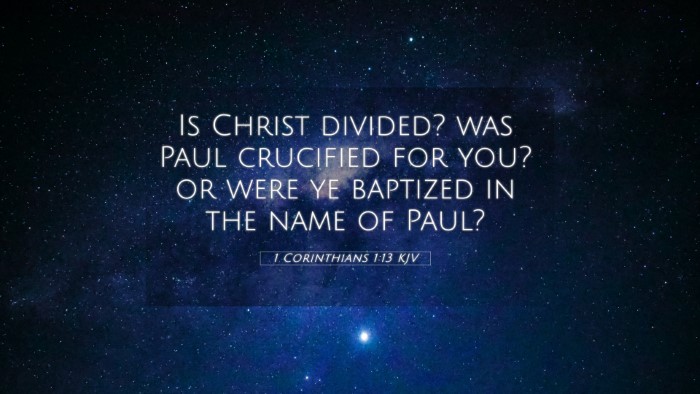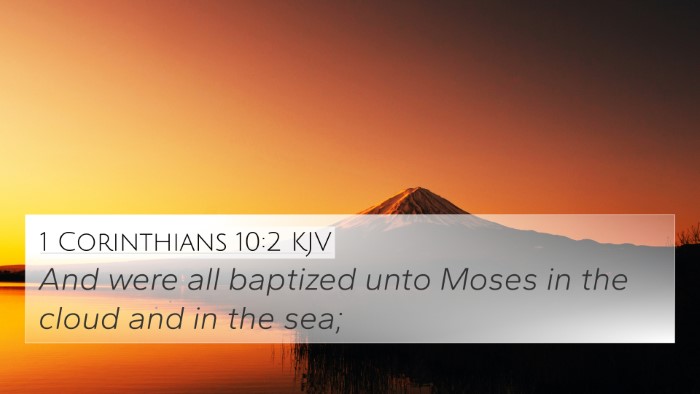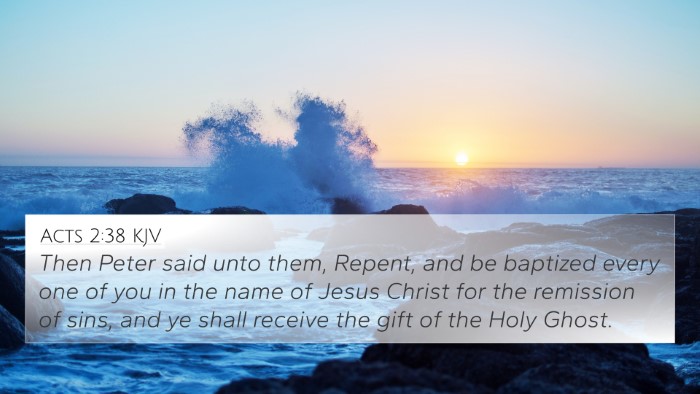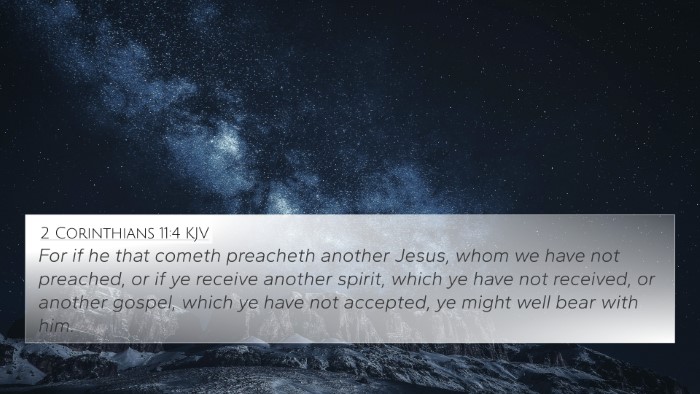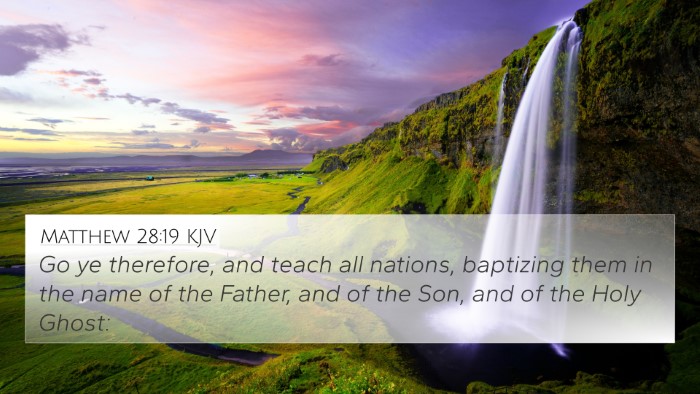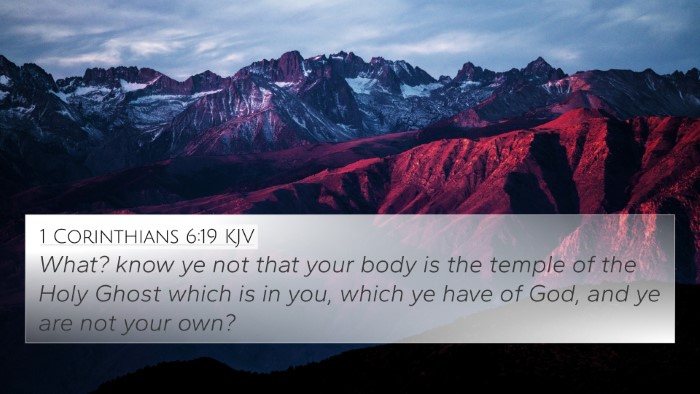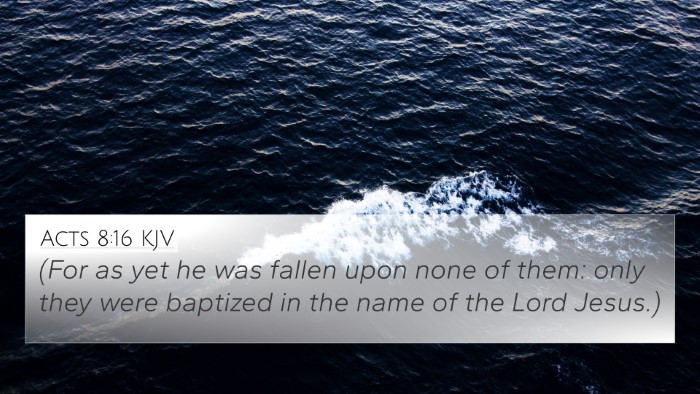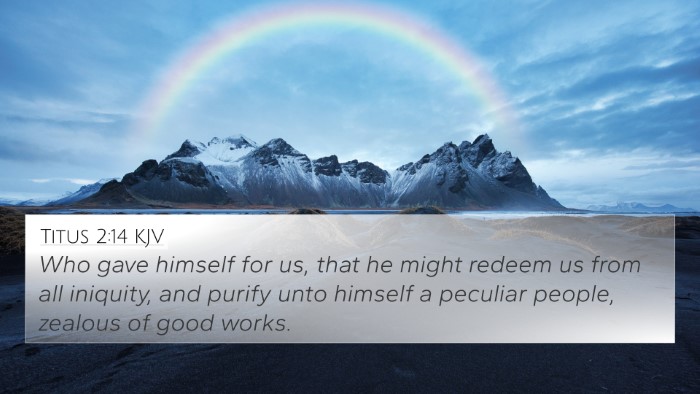Understanding 1 Corinthians 1:13
Bible Verse: 1 Corinthians 1:13 - "Is Christ divided? Was Paul crucified for you? Or were you baptized in the name of Paul?"
This verse raises critical questions about the unity of the Christian faith and the importance of the name under which believers are baptized. The Apostle Paul, addressing the Corinthian church, emphasizes the need for unity among believers, pointing out the absurdity of factions that separate the body of Christ.
Commentary Insights
In analyzing this verse, we can draw from several esteemed public domain commentaries:
- Matthew Henry: Henry emphasizes that Paul is asserting the oneness of Christ. He critiques the divisions within the Corinthian church, questioning why they would affiliate themselves with human leaders when it is Christ who should be central. Henry argues that the church must remain united under Christ’s headship, as division detracts from the purpose of the Gospel.
- Albert Barnes: Barnes highlights the rhetorical nature of Paul’s questions. He suggests that they are directed at the absurdity of dividing Christ for the sake of various leaders. In his opinion, the focus should not be on personalities, but rather on the message and the Savior whom they serve. Baptism by any human leader is futile when it is Christ who saves.
- Adam Clarke: Clarke comments on the existence of factions in the early church and explains that such divisions were at odds with the core teaching of Christ. He stresses that the unity of believers transcends any individual’s influence and that allegiance to Christ alone is paramount.
Key Themes in 1 Corinthians 1:13
- Unity in Christ: The verse emphasizes the call for unity among believers to prevent fragmentation of the church.
- Critique of Factions: Paul addresses the emergence of divisions based on loyalty to various leaders, urging the church to recognize that their true allegiance is to Christ.
- Importance of Baptism: The act of baptism symbolizes a believer's identification and union with Christ, not with a particular human leader.
Bible Cross References
- John 17:21: "That they may all be one, just as you, Father, are in me, and I in you." - This verse underscores the prayer of Christ for the unity of His followers.
- Romans 12:5: "So we, though many, are one body in Christ, and individually members one of another." - Paul teaches the significance of unity in diversity within the body of Christ.
- Ephesians 4:4-6: "There is one body and one Spirit... one hope that belongs to your call; one Lord, one faith, one baptism." - Paul reiterates the theme of unity in the faith.
- Colossians 3:11: "Here there is not Greek and Jew, circumcised and uncircumcised, barbarian, Scythian, slave, free; but Christ is all, and in all." - Highlights the breaking down of barriers in Christ.
- Philippians 1:27: "Only let your manner of life be worthy of the gospel of Christ, so that whether I come and see you or am absent, I may hear of you that you are standing firm in one spirit, with one mind striving side by side for the faith of the gospel." - Encouragement to live in unity for the Gospel's sake.
- 1 Peter 3:8: "Finally, all of you, have unity of mind, sympathy, brotherly love, a tender heart, and a humble mind." - A call for harmonious relationships among believers.
- Galatians 3:28: "There is neither Jew nor Greek, neither slave nor free, nor is there male and female, for you are all one in Christ Jesus." - Paul’s emphasis on unity transcending societal divisions.
Theological Implications
1 Corinthians 1:13 serves as a critical reminder of the foundational Christian doctrine that transcends sectarian lines. It illustrates that the essence of Christianity revolves around Christ's finished work and the call for all to be baptized in His name, fostering a universal church that celebrates its diversity in unity.
Conclusion
In summary, 1 Corinthians 1:13 warns against the dangers of division within the church and highlights the necessity of recognizing Christ as the true leader of the faith community. By fostering unity and discouraging factions, believers can better fulfill their calling to spread the Gospel and serve one another in love.
Engaging with 1 Corinthians 1:13 invites believers to explore the rich connections between various scriptures, reminding them of the centrality of Christ and the call to unity in the body of Christ. By utilizing tools for Bible cross-referencing and understanding the thematic connections between verses, individuals can deepen their faith and promote unity within their communities.
Further Study
To extend understanding, readers may consider exploring:
- The role of baptism in early Christianity and its theological significance.
- Comparative studies of Pauline epistles concerning church unity.
- Inter-Biblical dialogues that draw lines between Old Testament foundations and New Testament realities.

